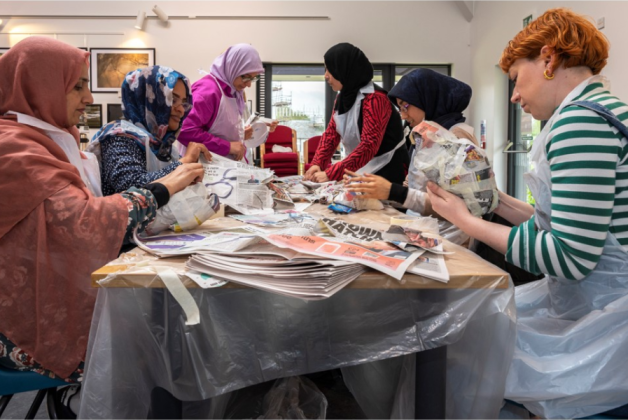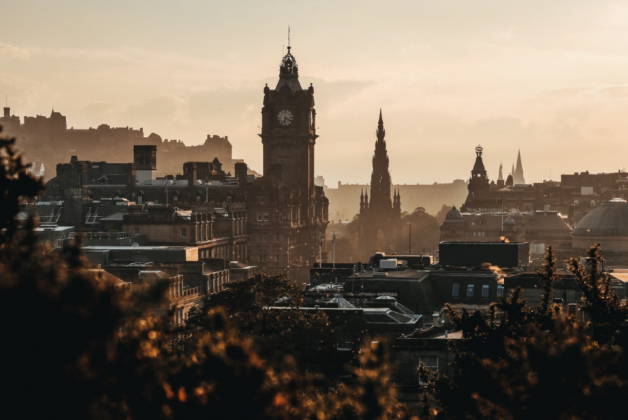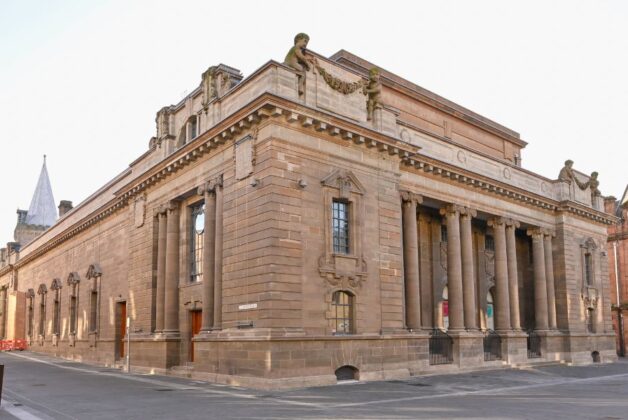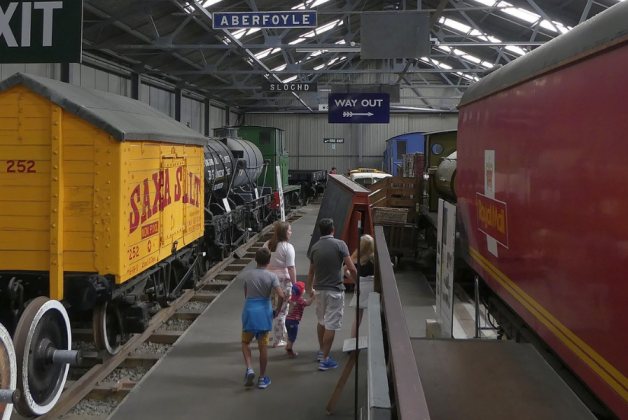Six recommendations from an independent group have been accepted, but a proposed £5m budget for a dedicated space was not met.
The Scottish Government has accepted the recommendations of an independent steering group which was set up to advise how empire, colonialism and historic slavery can be addressed using museum collections and spaces.
The Empire, Slavery and Scotland’s Museums (ESSM) Steering Group first published six recommendations in 2022, for the recognition of Scotland’s colonial and slavery history.
The recommendations include the creation of a dedicated space to address Scotland’s role in empire, colonialism and historic slavery, that museums involve the people of Scotland in shaping their work, and that the Scottish Government demonstrates support for restitution and repatriation of looted or unethically acquired items in Scottish collections.
The Scottish Government’s response was marked today at an event at The Hunterian, in Glasgow with Christina McKelvie MSP, Minister for Culture, Europe and International Development.
McKelvie said the Scottish Government fully accepts all six recommendations, including the creation of a dedicated space to address Scotland’s role in empire, colonialism and historic slavery.”
But the group’s suggested £5m budget for the new space was not possible, said McKelvie, citing “budgetary pressures”.
The Government has instead budgeted £200,000 for “scoping out the format of a new organisation to progress the creation of a dedicated space and national guidance around the repatriation of objects from Scottish institutions”.
At the event speakers highlighted anti-racist programmes of work in Scotland’s museums including Museums Galleries Scotland’s (MGS) three-year Delivering Change programme, developed in response to the steering group’s research and funded by the National Lottery Heritage Fund and Scottish Government.
The Scottish Government response asks MGS to support the sector to “take the next steps to address the ESSM recommendations and MGS is now actively taking this work forward.”
Lucy Casot, CEO of Museums Galleries Scotland, said “We are already seeing brilliant work by museums and galleries across the country collaborating with local communities impacted by the legacies of slavery and empire to create more inclusive heritage spaces. I am excited about the future of a museum sector that is truly inclusive, trusted and engaged with by all of Scotland’s people, and the role that MGS can play in supporting this work.”
Sir Geoff Palmer, Chair of Empire, Slavery & Scotland’s Museums Steering Group, said: “Museums hold a special place in my heart, as they offered a haven for me when I first came to the United Kingdom from Jamaica more than sixty years ago.
“The work that lies ahead may sometimes feel challenging and uncomfortable but will be
worth it to ensure that museums and galleries are for all of Scotland’s people.”
The six recommendations of the Empire, Slavery and Scotland’s Museums Steering Group’s report:
- Scotland should create a dedicated space to address our role in empire, colonialism, and historic slavery. A new organisation should be created to lead this work.
- Museums should ensure anti-racism is embedded in their workplaces and public spaces.
- Museums should involve the people of Scotland in shaping their work through co-production, to promote cultural democracy and participation for all.
- Museums should commit to research, interpret, and share the histories of Scotland’s links to empire, colonialism, and historic slavery.
- Museums should support efforts to promote and embed race equality and anti-racism in the curricula in a meaningful, effective, and sustainable way.
- Scottish Government should demonstrate their support for restitution and repatriation of looted or unethically acquired items in Scottish collections.
The 2022 recommendations can be read in full here.





